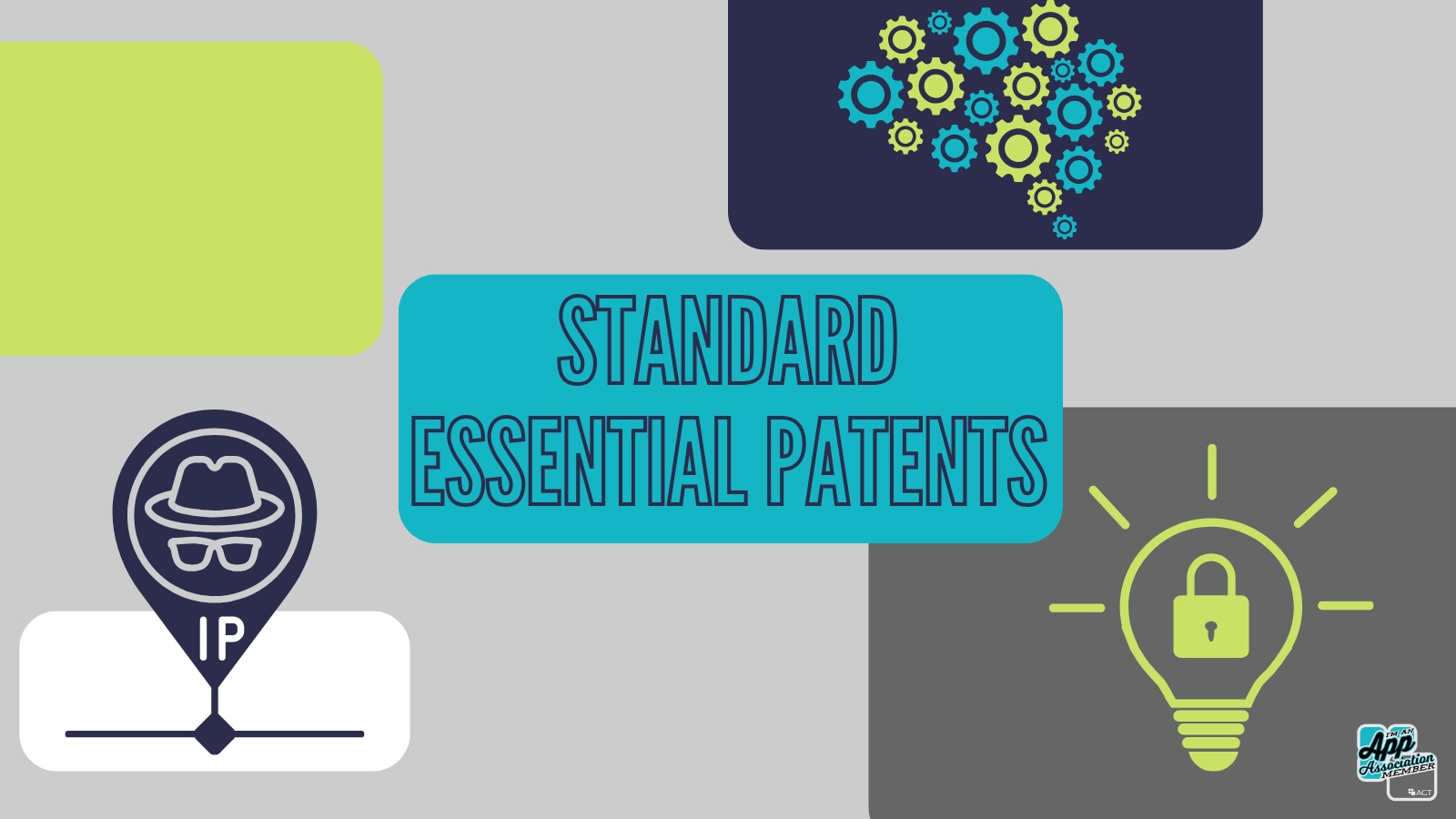Both patents and technical standards are essential for modern innovation. Patents represent a nation’s dedication to incentivizing hard work and creativity to create new solutions. Standard-essential patents (SEPs) are a unique category of patents that enable standardized invention, giving SEP holders great power, and great responsibility. Unfortunately, SEP holders have been taking advantage of their heightened market power and the lack of transparency in SEP licencing negotiations to the detriment of innovators using technical standards, such as those related to the internet of things (IoT) and the 5G suite of standards. The European Commission has proposed a Regulation, which aims to address the existing power imbalances and transparency issues within EU SEP licensing markets.
Our “Future of SEP Regulation” event took place on the 13th of November and was centred around the impacts and implications for small and medium-sized enterprises (SMEs), as well as the intricate dynamics of fair, reasonable, and non-discriminatory (FRAND) licensing negotiations.
We were honoured to be joined by Member of the European Parliament (MEP) Marion Walsmann, the Rapporteur of the proposed EU SEP Regulation, as our keynote speaker, to discuss the importance of regulatory change within the SEP licensing landscape. MEP Walsmann highlighted that the main objective of the EU SEP Regulation is to ensure a balanced SEP environment that invites strong collaboration, but she also emphasized that small and medium-sized companies are especially in need of regulatory change.
’84 percent of the SEP licensees are small or medium-sized companies. They need the clarity, and they don’t have a team of employees and the necessary means to carry out long-term court processes.’ MEP Marion Walsmann
During this event, our panel highlighted that SEP holders have a special power compared to other patent holders, and this is an inherent consequence of the standard-setting process.
‘It’s a bunch of people sitting around in a room many, many times over periods of years deciding who gets their technology in, who will have a monopoly to license their now wonderfully valuable IP. And this is why patent owners put such huge efforts into getting their technologies into the standard. It creates a scenario in which out of this group coordination, we create huge power, and the power is simply to charge whatever you like.’ Christopher Thomas, Managing Partner, Hogan Lovells Brussels office
For this reason, SEP licensors are assigned with the responsibility to commit to licensing their SEPs on fair, reasonable, and non-discriminatory (FRAND) terms.
‘The FRAND commitment that SEP holders make, I think, is absolutely fundamental,because standard–essential patents are a lot more than patents. They put these companies in such a strong, dominant position where you have no alternative but to use the technology that they patented and that is part of the standard, and that’s why special rules apply.’ Marc Greven, Legal Affairs Director, European Automobile Manufacturers’ Association
Unfortunately, SEP licensors still continue to charge supra-FRAND rates for SEP licences. This is why it is so important that the proposed Regulation introduces a mechanism for theEuropean Union Intellectual Property Office (EUIPO) to facilitate non-binding expert advice on SEP licensing disputes.
‘[The conciliators] will create a controlled environment where these tasks can be conducted calmly and without the threat on injunction on the standard implementer.’ Dr.Enrico Bonadio, Reader, City University of London
SEP licensors also use other strategies in order to gain more leverage in licensing negotiations, such as filing for or threatening the use of injunctions. Some large SEP holders regularly refuse to license to certain businesses altogether, which goes against the non-discriminatory requirement in the FRAND terms. Opportunistic SEP licensors often seek overbroad licenses, requiring the licensee to take or grant licences to a declared SEP that is not essential to the standard, unenforceable, or not infringed, or invalid. SEP holders also often over-declare their SEPs, which means that they declare patents essential for standards, when in reality, they are not.
‘[Y]ou get a letter with an offer, and you have no idea if that offer is good or bad, so you just have to take it, or you are risking basically an injunction which could put your company out of business, because you just don’t have the resources to be at court for several months. It’s as simple as that. The small and medium companies just don’t have the bandwidth to accommodate injunctions, especially if it happens in multiple markets.’ Tomas Navratil, Digital Strategist at Lucid Circus
In addition to these distortive behaviours, SEP holders create further power imbalance in negotiations by not publicly disclosing their licensing rates. SEP holders generally force businesses to sign overly restrictive non-disclosure agreements (NDA) related to the details of the SEP licensing contract, which prohibits businesses from sharing information with each other on the comparable pricing.
‘There’s just a simple fact that remains, and I think that almost everyone can agree, that substantial information asymmetries persist between parties in FRAND negotiations today.’ Jonas Hein, Legal and Policy Officer, European Commission, DG GROW
It is clear that the current state of the SEP licensing landscape is currently a difficult environment for small businesses to operate in, and regulatory change is long overdue. Mike Sax, founder and chairperson of the App Association, summarized this perfectly:
‘What comes to mind is “Help us Obi-Wan Kenobi, you’re our only hope.” This regulation cannot come soon enough for innovators in Europe.’ Mike Sax, Founder and Chairperson, ACT | The App Association
Our panel consisted of Jonas Hein (Legal and Policy Officer, European Commission), Christopher Thomas (Managing Partner, Hogan Lovells Brussels office), Dr. Enrico Bonadio (Reader, City University of London), Marc Greven (Legal Affairs Director, European Automobile Manufacturers’ Association), and ACT | The App Association member representative, Tomas Navratil (Digital Strategist at App Association Member Lucid Circus).
If you want to learn more about the difficulties SMEs face related to SEP licensing and how the proposed EU SEP Regulation aims to level the playing field, you can watch the full panel discussion below or on our YouTube channel.
